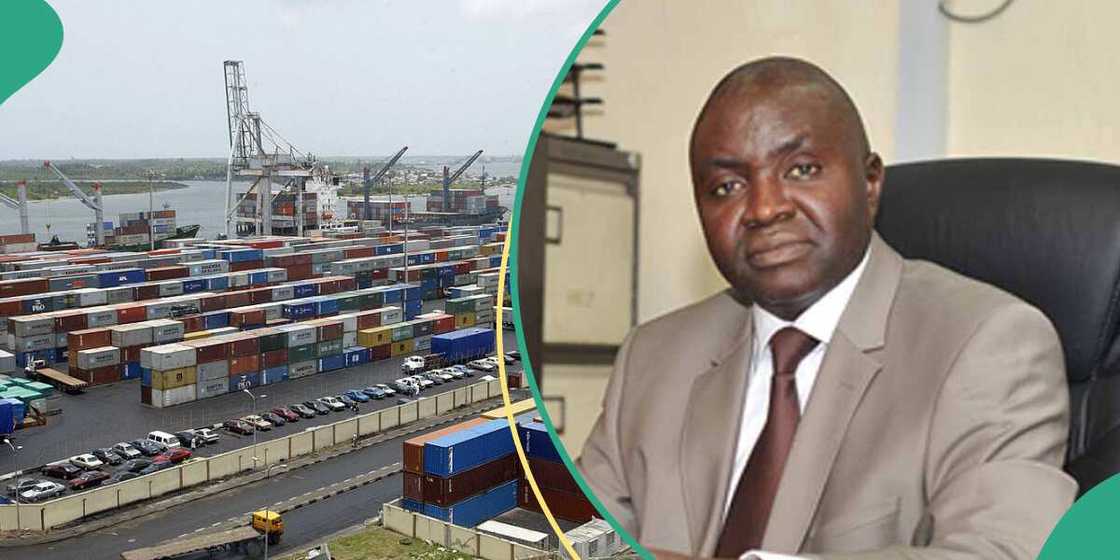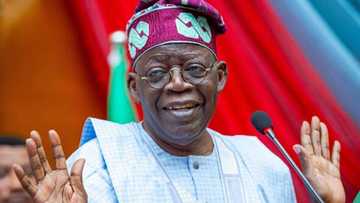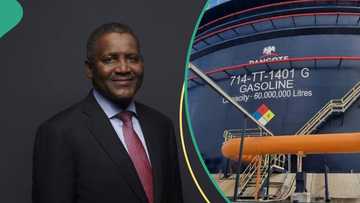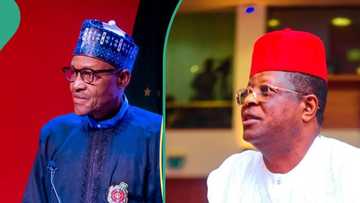Muda Yusuf Speaks as Customs Sets New Exchange Rate For Importers to Clear Goods at Ports
- The Nigeria Customs Service has begun implementing the Central Bank of Nigeria's floating exchange rate policy on import duty
- However, a renowned economist, Muda Yusuf, reacted to the development and warned about the dangers of the new system
- Currently, importers pay N951.94 for one dollar as import duties when clearing goods
Legit.ng journalist Dave Ibemere has over a decade of experience covering Tech, Energy, Stocks, Investments, and Economy
Muda Yusuf, the chief executive officer of the Centre for the Promotion of Private Enterprise (CPPE), has expressed concerns about continuous changes in exchange rates for import duties in the country.
Since the Central Bank of Nigeria (CBN) adopted the floating exchange rate system in June, the Nigeria Customs Service (NCS) has reviewed the import duty exchange rate four times.

Source: Facebook
On June 24, 2023, the Nigeria customs adjusted the exchange rate from N422.30 to N589 per dollar.
PAY ATTENTION: Сheck out news that is picked exactly for YOU ➡️ find the “Recommended for you” block on the home page and enjoy!
Another adjustment was made on July 6, 2023, to N770.88 to a dollar, while on November 14, it was re-adjusted to N783.174.
Legit.ng reports that the current import duty exchange rate is N951.941 against a dollar.
Muda Yusuf worries exchange rate will affect business
Reacting to the exchange rate changes, Yusuf, in a statement made available to Legit.ng on Sunday, December 10, 2023, said the move would worsen the already prohibitive production and operating costs for businesses in the country.
He also stressed that it would impact the cost of all imports, including raw materials for manufacturers, pharmaceutical products, machinery, energy products, petroleum products and many more.

Read also
Nigeria attracts $5bn investment from global oil giant after GSK, P&G announced exit from country
His words:
“The recent decision by the Central Bank of Nigeria to increase the customs exchange rate from N783 to N952 per dollar would inflict more pain on the citizens, erode profit margins, reduce purchasing power and put the survival of businesses at an elevated risk.
“The frequent changes in rates are also creating serious issues of uncertainty for investors and making the international trade process increasingly unpredictable.
“Already, businesses are contending with an incredibly difficult operating environment arising from severe macroeconomic headwinds.
“The persistent currency depreciation is making access to intermediate products very difficult for manufacturers, energy cost remains very high, purchasing power is weak, investors confidence is declining and consumer confidence is on the downward trend”
Speaking further, the CPPE boss warned that the import duty increase would make the importation cost through official channels even more prohibitive, which may result in unintended outcomes, Punch reports.

Read also
FG takes special action to crash cooking gas price after 4 vessels loaded with LPG arrive Nigeria
He noted:
“ There will be greater incentives for smuggling; more industries that are dependent on the imported raw materials may shut down.
“Customs revenue may decline as imports through official channels become difficult; worsening an already bad inflation situation; worsening an already bad poverty situation and the welfare conditions of the citizens; heightened corruption vulnerabilities in the international trade ecosystem and Increase in the influx of substandard products amid high and increasing cost of products.”
Yusuf further asked the CBN and the coordinating minister of the economy to reconsider the price raise.
He added:
“The CBN should allow for a concessionary rate for the computation of import duty to protect the economy and the citizens from the reality of unbearable inflationary pressures.
“We propose that going forward, CBN should fix the customs duty rate at 20 per cent less than the official exchange rate in the light of the prevailing harsh economic conditions."

Read also
Dangote speaks on next step, targets as refinery begins processing of 1m barrels of crude oil
Customs issues fresh orders to private jet owners in Nigeria
Legit.ng earlier reported a claim by the NCS that about 30 private aircraft owners that underwent verification exercise were liable to pay the required duties.
During the exercise in Abuja, NCS's spokesman, Joseph Attah, said some of the aircraft for which the duties should be paid to the federal government were shipped into the country by the Temporary Importation Agreement (TIA), a bond that allows them to bring the jets without payment.
PAY ATTENTION: Unlock the best of Legit.ng on Pinterest! Subscribe now and get your daily inspiration!
Source: Legit.ng



